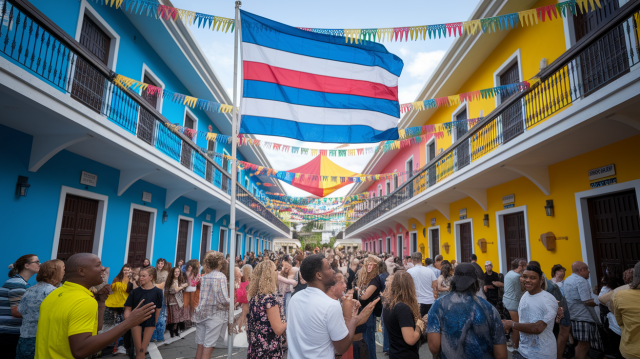St. Lucia Independence Day, celebrated annually on February 22, marks the day in 1979 when Saint Lucia achieved full independence from the United Kingdom. In 2025, this national holiday will commemorate the island’s 46th anniversary of independence, celebrating its journey toward self-governance and honoring its cultural heritage, resilience, and unity. The day is a vibrant celebration of national pride, featuring parades, cultural events, and community gatherings.
Why Is It Celebrated?
St. Lucia Independence Day is celebrated to honor the nation’s liberation from colonial rule and to reflect on the sacrifices and achievements that paved the way for independence. It serves as a reminder of the importance of unity, resilience, and creativity in building a prosperous nation. The day also highlights Saint Lucia’s ongoing progress in areas such as education, health, and cultural preservation.
Cultural Significance
The day reflects Saint Lucia’s rich cultural tapestry, shaped by its African, French, British, and indigenous influences. Celebrations showcase the island’s traditions through music, dance, food, and art. Events such as the Independence Baton Relay, street parades, and cultural exhibitions emphasize national pride and unity while honoring the island’s diverse heritage.
Social Impact
St. Lucia Independence Day fosters a sense of community by bringing citizens together to celebrate their shared identity. It strengthens bonds among Saint Lucians at home and abroad while promoting inclusivity through events like sports competitions, concerts, and festivals. The day also provides an opportunity for local businesses and artists to showcase their talents.
The Importance of It
This day underscores the significance of freedom and self-determination for Saint Lucians. It serves as a platform to celebrate national achievements while inspiring future generations to contribute to the country’s development. The festivities also highlight the importance of preserving cultural traditions and fostering unity in diversity.
Educational Value
The occasion provides an opportunity for younger generations to learn about Saint Lucia’s history—from its indigenous roots with the Arawaks and Caribs to its colonial past under French and British rule—and its path to independence in 1979. Schools often organize activities that teach students about key milestones in the nation’s journey.
Emotional Connection
For many Saint Lucians, Independence Day evokes pride and gratitude for their nation’s achievements. It is a time to honor the sacrifices of past generations while celebrating progress as a united people. The day fosters a deep emotional connection to Saint Lucia’s heritage and aspirations.
The Origin of It
Saint Lucia gained full independence on February 22, 1979, under the leadership of Sir John Compton from the United Workers Party (U.W.P.). This milestone marked the culmination of efforts that began with self-governance in 1967 as part of the West Indies Associated States.
Historical Events
- 1660-1814: Control of Saint Lucia alternated between French and British rule 14 times.
- 1967: Achieved self-governance as part of the West Indies Associated States.
- February 22, 1979: Gained full independence under Sir John Compton.
- 1980s-Present: Continued development in tourism, education, agriculture, and infrastructure.
Evolution Over Time
Since gaining independence, St. Lucia Independence Day has grown into a vibrant celebration featuring diverse activities such as military parades, cultural showcases, sports events, business expos, and community service initiatives.
How to Celebrate
- Attend Parades: Join or watch military parades and street celebrations showcasing national pride.
- Wear National Colors: Dress in blue, yellow, black, or white to represent Saint Lucia’s flag.
- Enjoy Cultural Performances: Participate in events featuring traditional music like calypso or zouk, dance performances, and art exhibitions.
- Participate in Community Events: Take part in local gatherings or sports competitions that foster unity.
- Savor Local Cuisine: Enjoy traditional dishes like green fig and saltfish or Creole-inspired meals at food festivals.
- Share Online: Use hashtags like #StLuciaIndependenceDay or #ProudLucian to share your experiences on social media.
Conclusion
St. Lucia Independence Day is more than just a public holiday—it is a celebration of freedom, culture, resilience, and unity. As Saint Lucians come together on February 22, 2025, they honor their history while looking forward to a brighter future. This day serves as a powerful reminder of what can be achieved through determination and solidarity. Let us celebrate this occasion with pride and joy!











